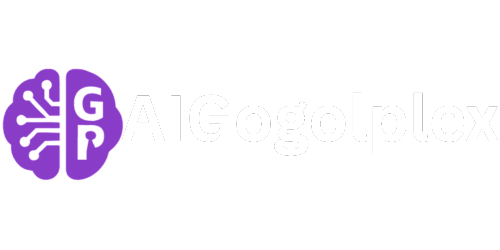Think AI is too complicated to learn? Think again. The world is racing toward an AI-powered future, and the smartest move you can make is to get ahead right now. In this practical AI learning roadmap, you’ll discover exactly what to study, how to avoid beginner traps, and where to start without feeling overwhelmed. Ready to dive in? Let’s break it down.
Why Learning AI Now Matters More Than Ever
Artificial Intelligence is no longer a futuristic concept it’s already shaping how we live, work, and interact. Whether it’s voice assistants, recommendation engines, or autonomous systems, AI is powering innovations across every industry. Learning AI now isn’t just a competitive edge it’s a gateway to some of the most lucrative career paths in tech.
But here’s the twist: with so much content online, it’s easy to feel overwhelmed. That’s why having a well-structured roadmap is your secret weapon to cut through the noise and start strong.
Understanding the Core Areas of AI
Machine Learning vs Deep Learning: The Basics
Machine Learning (ML) focuses on building models that learn from data. Deep Learning (DL), a subset of ML, uses neural networks to solve more complex tasks like image recognition and language translation. For beginners, starting with ML gives you the right foundation to later dive into deep learning confidently.
Natural Language Processing (NLP) Explained Simply
NLP is the technology behind chatbots, voice assistants, and real-time translation. It enables machines to understand, interpret, and respond to human language. Tools like GPT and BERT are popular NLP models powering everyday applications.
Want to better understand terms like NLP, GANs, and neural nets? Visit the AI Terms Glossary for Beginners for clear, no-fluff explanations.
The Skills You Need to Start Your AI Journey
Must-Have Technical Skills: Math, Python & Data
To get started in AI, focus on three essential areas: basic statistics, Python programming, and data handling. Python is the go-to language for AI, thanks to its clean syntax and robust libraries like TensorFlow, PyTorch, and Scikit-learn.
If you’re just beginning and need a step-by-step approach, check out this solid guide on How to Learn AI from Scratch.
Soft Skills That Give You a Competitive Edge
Technical chops aren’t everything. Successful AI learners also know how to think critically, solve problems creatively, and communicate ideas effectively. In fact, these human-centered skills are what make your models valuable in the real world.
Tools, Platforms, and Resources for Learning AI
Top Free & Paid Online Courses That Deliver Value
Some of the most trusted platforms for AI education include:
- Coursera AI Professional Certificate
- Udemy’s Artificial Intelligence A-Z™
- Microsoft AI Fundamentals Path
These options vary in price, pace, and specialization so whether you’re a hobbyist or career-switcher, there’s something tailor-fit for you.
Must-Use AI Tools for Practice and Experimentation
When it comes to hands-on learning, nothing beats using real tools. Here are some must-try platforms:
- Google Colab – Free cloud-based Python notebook for running AI code
- Kaggle – Datasets, notebooks, and competitions in one place
- TensorFlow – Open-source library for building machine learning models
Also, if you want to skip the fluff and dive into guided learning, this article may help: Start Learning Artificial Intelligence the Smart and Easy Way.
Common Pitfalls That Kill AI Learning Momentum
Chasing Too Many Topics at Once
One of the biggest traps for new learners is bouncing between tutorials, frameworks, and theories without building depth in any. AI is a broad field, so resist the urge to learn everything at once. Focus creates traction traction builds momentum.
Skipping Hands-On Practice
Reading and watching videos can only take you so far. If you’re not coding, modeling, or playing with data regularly, your knowledge stays theoretical. Aim to spend at least 50% of your time building, even if it’s basic models or small projects.
A Practical 5-Phase Roadmap to AI Mastery

Phase 1: Build Your Foundations
Start by mastering the basics statistics, probability, linear algebra, and Python. Platforms like Khan Academy and Codecademy are excellent for beginners.
Phase 2: Learn Key Algorithms & Models
Dive into supervised and unsupervised learning. Understand algorithms like linear regression, decision trees, and k-means clustering. Need a broader view? Visit Key Concepts in Artificial Intelligence for a breakdown.
Phase 3: Start Mini Projects
Apply what you learn with small, focused projects like a movie recommender system, spam detector, or image classifier. These sharpen your skills and build confidence.
Phase 4: Join AI Communities and Competitions
Connect with learners and experts on forums like Reddit’s r/MachineLearning or participate in Kaggle competitions. You’ll learn faster and stay motivated.
Phase 5: Build a Portfolio That Gets You Hired
Show your skills through GitHub repositories, a personal website, or even a blog. Real-world proof of your knowledge makes a massive difference when applying for jobs or freelance gigs.
Final Thoughts: Is the AI Learning Roadmap for You?
If you’re curious, motivated, and willing to get your hands dirty, then yes this roadmap is built for you. The AI field rewards consistent learners who build, test, fail, and try again. Whether your goal is to land a job, build a product, or simply stay ahead of the curve, this roadmap will guide you every step of the way.
Ready to take the next step? Choose one skill or course from today’s list and start now. Your future self will thank you.
Conclusion
The path to mastering AI doesn’t have to be chaotic or confusing. With a focused roadmap and the right tools, you can learn AI faster, smarter, and with real purpose. Whether you’re aiming for a new career or building a side project, now is the time to act. Explore the links, choose your starting point, and begin your AI journey today.

